Our History
How an Idea Made an Impact
It started with land and a grand plan and these words describe the birth of Florida’s 10th state university on a 760-acre spread of pinewoods and wetlands between Fort Myers and Naples just off the southwest coast of the Sunshine State.
1997
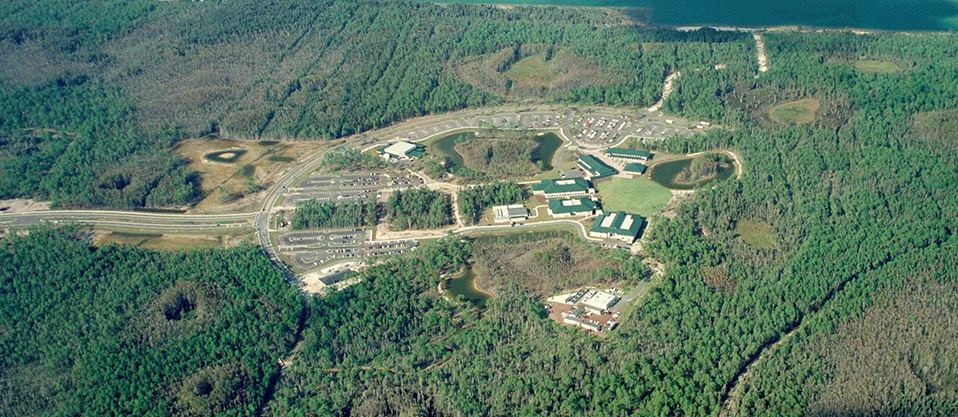
Now

Leadership Timeline
FGCU was founded 1991 as Florida’s 10th state university, and classes began in August 1997. We’ve had five presidents.
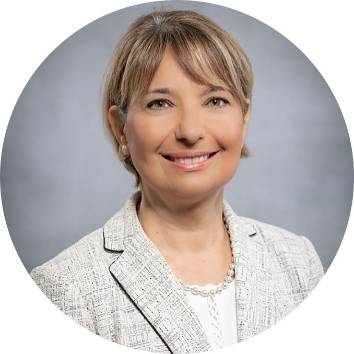
Aysegul Timur, Ph.D
2023-Present

Michael Martin, Ph.D.
2017-2023
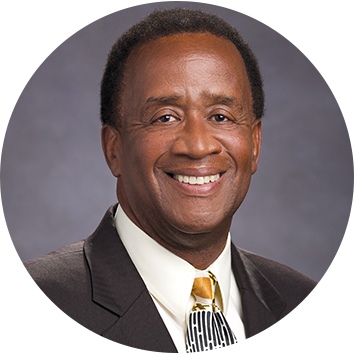
Wilson G. Bradshaw, Ph.D.
2007-2017
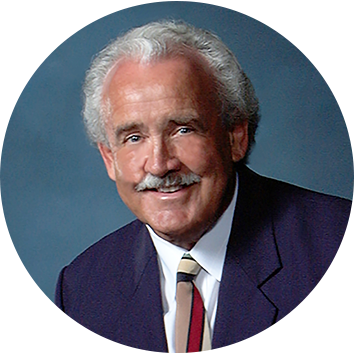
William C. Merwin, Ph.D.
1999-2007
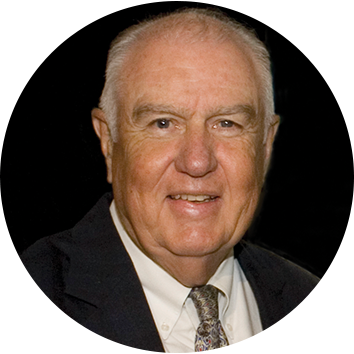
Roy E. McTarnaghan, Ph.D.
1993-1999
The Formative Years
Fort Myers banker W.T. “Tommy” Howard lobbied for a Southwest Florida branch campus of the University of South Florida in the 1970s as a member of the Commission on the Future of Florida’s Public Universities. Howard’s vision became a reality in 1982 when USF opened a branch adjacent to what was then Edison Community College in Fort Myers, marking the beginning of a four-year institutional presence in the region. FGCU’s establishment would come along nine years later in 1991. Charlie Edwards was planning committee chair of the state Board of Regents when the push for a four-year school in Southwest Florida took shape, largely due to behind-the-scenes work of local state legislators Reps. Keith Arnold, Mary Ellen Hawkins and Vernon Peeples and Sen. Fred Dudley. Edwards became chair of the Board of Regents and helped persuade the Florida Legislature to pass legislation in January 1991 that recommended Florida’s 10th state university be built in the southwest region, and Gov. Lawton Chiles made it official that May when he signed a bill authorizing the school.
The following year, the Board of Regents selected a 760-acre site donated by Ben Hill Griffin III and Alico, Inc., on which to build the University. On April 26, 1993, Dr. Roy E. McTarnaghan, who served as the executive vice chancellor for the State University System of Florida, was appointed president of the yet-unnamed “New University of Southwest Florida.” Founding President McTarnaghan and a small group of five employees — including now-retired Barbara Krell, executive assistant to the president; and Susan Evans, chief of staff — set up shop in downtown Fort Myers in space provided by the Lee County Commission.
Also created in 1993 was a fundraising foundation for the University that Edwards helped form and for which Howard would serve as first board chair.
In 1994, the up-and-running operation would finally get a banner under which to operate. After a lengthy process that McTarnaghan described as, "entailing a legislative endorsement, with hundreds of names and thousands of people involved," the new institution was officially named Florida Gulf Coast University. That February, the initial phase of campus construction was revealed, and the University started taking physical shape Nov. 28, 1995, when more than 600 people watched student leaders from area high schools turn shovels of dirt at an official groundbreaking ceremony. McTarnaghan recalled that the University secured the necessary permits to develop the environmentally sensitive site just two days before the groundbreaking, the culmination of what he called a "high-stakes poker game."
The Board of Regents approved inaugural degree programs in March 1996, and the building of a campus for students, faculty and staff finally came together when FGCU opened on schedule Aug. 25, 1997, with 2,584 students — including FGCU’s first enrolled student, Mariana Coto — and $38 million in assets collected by the FGCU Foundation.
The following year, the first official FGCU commencement took place in May with 81 students graduating, and in the summer of 1998, the first phase of student housing opened.
The Boom Years
It would be a transitional year in 1999. McTarnaghan officially retired May 1 after announcing his intent to do so the previous September, having successfully planned and opened the first new state university in Florida in more than 20 years. In June, FGCU celebrated notification it had earned accreditation by the Southern Association of Colleges and Schools (SACS) in record time. And in July, the Board of Regents named Salisbury State University president Dr. William C. Merwin as FGCU’s second president, and he hit the ground running from the moment he clocked in on campus Sept. 16, 1999.
Armed with the advocacy that came with the 2001 installation of a University-centric, governing FGCU Board of Trustees with Southwest Florida representatives for oversight answering to a Board of Governors (which succeeded the Board of Regents), FGCU would explode with the advent of the new millennium.
With the help of a Southwest Florida community that lent its expertise and opened its wallets, in came an athletics program and its accompanying first-class facilities, new academic buildings and residence halls, and expanded degree offerings — not to mention the Renaissance Academy outreach program that took FGCU-sponsored education into the adult community.
In an eight-year turn as president that would end with his 2007 retirement, Merwin orchestrated seismic growth that almost tripled both enrollment and the number of buildings on campus, and more than doubled the annual operating budget — all due in large part to the almost $220 million in private gifts and donations he is credited with helping to raise during his tenure.
Marking Milestones
That incredible track record of growth in enrollment, infrastructure and impact has continued under the leadership of Dr. Wilson G. Bradshaw, who in 2007 took over as FGCU president from interim Dr. Richard Pegnetter, founding dean of the Lutgert College of Business, who stepped in after Merwin’s retirement. Bradshaw was named FGCU’s third president by the FGCU Board of Trustees on Aug. 25, 2007 — the 10-year anniversary of the University’s opening day for students.
Under the guidance of Bradshaw, who retired as president in June 2017, the university celebrated its 20th anniversary. FGCU has become a catalytic leader in stimulating regional economic growth, as a living laboratory that stays true to its mission of sustainability, and as a cultural and entertainment hub in the fine and performing arts and athletics. From the seeds planted by the local movers-and-shakers who made Florida’s 10th university happen, 2 1/2 decades of visionary progress and innovation have created an institution that has:
- Almost 100 undergraduate, master's and doctoral degrees offered through five colleges.
- About 15,000 undergraduate and graduate students, about a third of whom reside in campus housing.
- One of the best graduate-employment rates in the State University System.
- Approximately 1,300 faculty and staff members.
- 180 registered student organizations and 20 Greek organizations.
- Athletics that include 15 NCAA Division I men’s and women’s programs and 26 sports clubs.
- 37,779 alumni and 20 alumni chapters nationwide.
- Eight off-campus properties in Lee, Collier and Charlotte counties in addition to an 800-acre campus, including a 15-acre solar field.
- Almost $240 million in awards earned for research and sponsored programs.
- 4 million student service-learning hours given to the community.
What started historically as land and a grand plan has evolved today into The FGCU Effect — two-plus decades of meaningful, far-reaching impact.
The history of Florida Gulf Coast University (FGCU) is a visionary one built on support for providing higher education opportunities in Southwest Florida. Area citizens began the initiative to bring a state university to this part of Florida, and their early requests were quickly supported by elected officials at the local and state levels.
SW Florida Gets a State University
The former Florida Board of Regents formally recommended in January 1991 the development
of Florida’s 10th state university to be located in Southwest Florida, and, in May
1991, then Governor Lawton Chiles signed the legislation authorizing the new university.
Southwest Florida’s support for a university was never more evident than during the
next year, when private landowners offered more than 20 gift sites for the university
campus. In early 1992, the Board of Regents selected the site offered by Ben Hill
Griffin III and Alico, Inc. of 760 acres of land located just east of Interstate 75
between Alico and Corkscrew Roads.
University and President Named
Roy McTarnaghan was named founding university president in April 1993. Initial staff
was hired that summer, and the university’s academic and campus planning began in
earnest. Plans for the first phase of campus construction were unveiled in February
1994, and shortly thereafter, the Florida Legislature named the institution as “Florida
Gulf Coast University.” The vision for the university was one that would address emerging
higher education needs for the 21st century, including the use of technology in the
learning/teaching process and multi-year contracts as an alternative to faculty tenure.
The Board of Regents approved an agreement in May 1995 with the United Faculty of
Florida allowing FGCU to offer a contract system for faculty.
2 Years From Groundbreaking To Opening
Campus groundbreaking was held on November 28, 1995, with more than 600 people participating
in the celebratory event for Southwest Florida. With aggressive academic program and
campus development schedules slated to culminate in an opening day of August 25, 1997,
the early staff and faculty were busy meeting deadlines every month. Inaugural degree
programs were approved by the Board of Regents in March 1996. The FGCU Foundation,
a private fundraising arm of the university, gained extraordinary financial support
for an institution that at the time could only be seen on a drawing board. Faculty
members throughout the country were attracted to FGCU for the opportunity to offer
higher education in new and innovative ways.
81 Graduate in 1st Commencement
The first FGCU student, Mariana Coto, was admitted in January 1997, and she participated
in the historic ribbon cutting on the university’s August 25, 1997 opening day. The
Southern Association of Colleges and Schools (SACS) awarded FGCU accreditation candidacy
later that year, and a comprehensive self-study was launched. The first commencement
was held in May 1998, with 81 FGCU graduates. In August 1998, the first phase of student
housing opened.
Accreditation and the 2nd President
In September 1998, Founding President McTarnaghan announced his intention to retire
as President on May 1, 1999. The Board of Regents launched a national search for FGCU’s
second president held during the spring and summer, and the university received official
notification in June 1999 that it had achieved, in record time, accreditation by the
Southern Association of Colleges and Schools. In July 1999, the Board of Regents named
William C. Merwin as FGCU’s second president. President Merwin arrived on campus for
his first day on September 16, 1999. He initiated a highly participatory strategic
planning process for students, faculty, and staff to carry the young institution to
its next stage of development.
University Gets Own Board of Trustees
The Florida Legislature established governing boards of trustees for state universities
in 2001, and 13 members were appointed to the Florida Gulf Coast University Board
of Trustees. This governing board continues to provide leadership that is strategic,
forward focused, community based, and responsive to the region and state. In January
2007, FGCU President Bill Merwin retired, and Dean of the Lutgert College of Business
Richard Pegnetter was named Interim President by the FGCU Board of Trustees. A highly
competitive national search for FGCU’s third president was launched.
3rd President Selected on 10th Anniversary
On the university’s 10th anniversary of its opening day — August 25, 2007 — the FGCU
Board of Trustees selected Wilson G. Bradshaw to serve as the institution’s third
president. President Bradshaw led FGCU through its second decade of development and
service as a comprehensive university offering access to quality higher education
in Southwest Florida. Student enrollment grew 60% from 2007 to 2016, and new undergraduate
and graduate degree programs continued to be added, along with academic buildings
and student housing. FGCU Athletics achieved NCAA Division I status emerged as national
powerhouse in 2013 when "Dunk City" became the first #15 seed to advance to the Sweet
16 in the NCAA DI Men's Basketball Championship.
Nearing 20th Year, FGCU Selects 4th President
As FGCU approached its 20th anniversary in August 2017, the FGCU Foundation exceeded
a $100 million fundraising campaign to fuel continued development of scholarships,
athletics and programs that contribute to student success. Graduates grew to more
than 25,000, spurring the launch of 10 Alumni Association chapters across the country.
President Wilson G. Bradshaw announced he would retire at the end of the 2016-17 academic
year after a decade of leadership, and the Board of Trustees in February 2017 selected
Michael Martin to succeed him.
